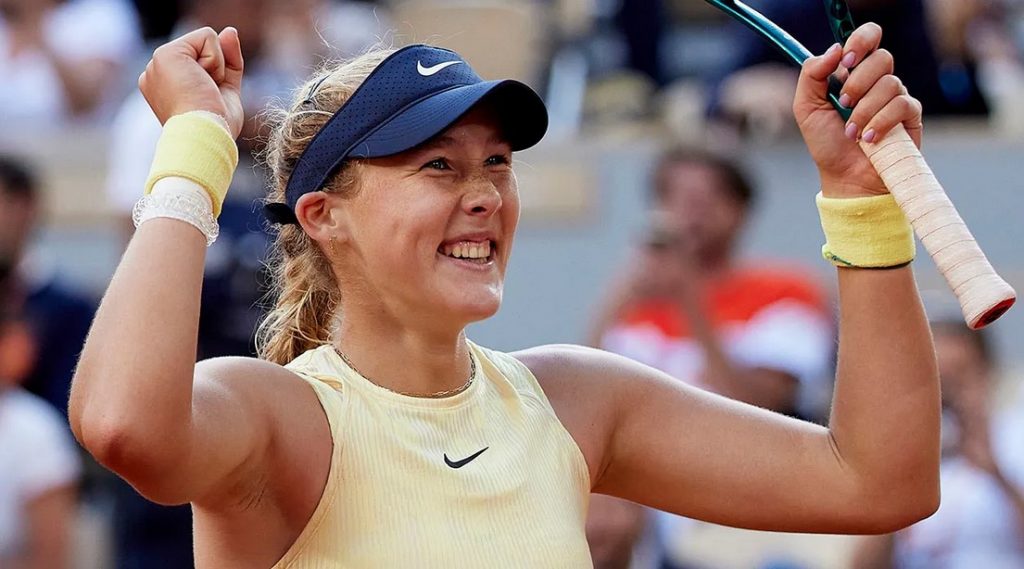The world of tennis has witnessed some remarkable achievements by young prodigies who have defied expectations and set records at an early age. The youngest tennis player to win a major title stands as a testament to the extraordinary talent and determination that these athletes possess. Winning a Grand Slam at such a young age not only showcases their exceptional skill but also paves the way for a promising career in the sport. This article delves into the stories of these young champions, exploring their journeys and the significant impact of their early victories on the tennis world. From breaking age records to inspiring future generations, the accomplishments of the youngest grand slam winners highlight the dynamic and evolving nature of professional tennis.
Martina Hingis: The Youngest Ever
Martina Hingis, a Swiss tennis prodigy, made history as the youngest tennis player to win a grand slam. Born on September 30, 1980, Hingis showed exceptional talent from an early age, turning professional at just 14. Her career is marked by numerous achievements, but her most notable triumph came at the 1997 Australian Open when she was only 16 years old.
In 1997, Hingis dominated the Australian Open, defeating seasoned opponents with remarkable ease. Her victory in the final against Mary Pierce, with a score of 6-2, 6-2, made her the youngest Grand Slam winner in the Open Era. This achievement not only solidified her place in tennis history but also set the stage for a series of successful campaigns in subsequent Grand Slam tournaments.
Hingis’s impact on women’s tennis extends beyond her early victories as the youngest tennis player to win a major. Her unique playing style, characterized by exceptional agility and strategic prowess, challenged the dominance of power-based players. Hingis’s success paved the way for a new era in women’s tennis, inspiring many young athletes to pursue their dreams.
As the youngest tennis player to win a grand slam, Martina Hingis’s legacy is a testament to the power of youthful determination and skill in shaping the future of sports. Her career continues to inspire and influence the tennis world, demonstrating that age is no barrier to achieving greatness.

Other Notable Young Winners
The realm of tennis has been remarkably shaped by young players who achieved major milestones early in their careers. This section highlights two such prodigious talents who not only claimed Grand Slam titles in their teens but also set new records and became inspirations for future generations. Youngest tennis player to win a major, Monica Seles and Michael Chang are emblematic of the kind of youthful tenacity and skill that can make an indelible mark on the sport. Both players, winning major titles before turning 18, shattered expectations and broke records, leaving legacies that are discussed to this day. Here, we delve into the lives and careers of these extraordinary athletes, exploring how their early successes at the French Open propelled them into the tennis elite and influenced the game’s evolution.
Monica Seles: Setting a New Standard
At the youthful age of 16, Monica Seles broke through the tennis world’s barriers by winning the 1990 French Open, earning her the title of the youngest person to win a Grand Slam. Her aggressive style and mental toughness set her apart, leading to a dominant period in women’s tennis. Seles’s early success paved the way for future generations, challenging them to achieve greatness at a young age.
Michael Chang: Defying Expectations
In 1989, Michael Chang captured the global sports spotlight by becoming the youngest player to win Grand Slam at the French Open, just shy of his 18th birthday. His remarkable run at such a young age not only made headlines but also injected a fresh youthful spirit into the sport. Chang’s victory demonstrated that perseverance and strategic play could triumph over experience and power, influencing countless young players to dream big.
Reflecting on the Impact of Tennis’s Youngest Champions
The achievements of the youngest tennis player to win a major have significantly shaped the landscape of professional tennis, heralding a new era of youthful dominance in a sport traditionally ruled by seasoned veterans. These youngest grand slam winners have not only inspired awe with their precocious talents but have also redefined what is possible for athletes at an early age. Their impact extends beyond personal accolades, influencing training methodologies and fostering a culture of intense competitiveness among emerging players. Looking forward, the future seems promising for young talents aiming to replicate or surpass these feats. The continued evolution of training, technology, and sports science likely means that the records set by these phenomenal athletes will inspire the next generation to reach even greater heights in the world of tennis.

Recent Comments